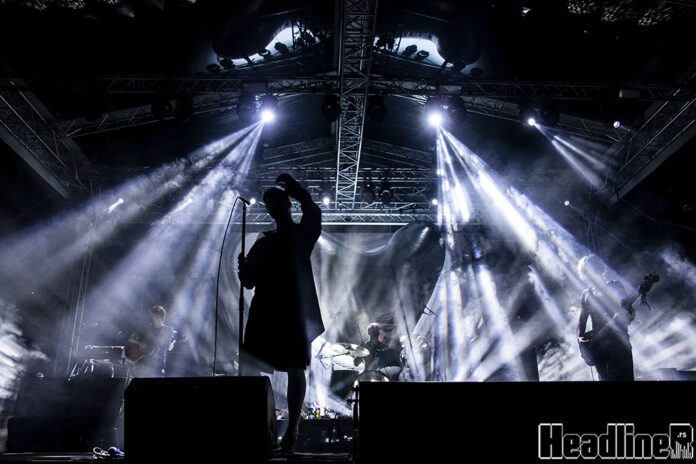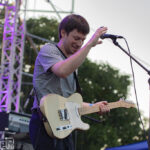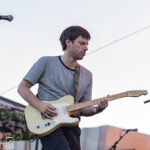Skinty Fia was the album that ruled the UK charts in 2022. The red album cover and the curse of the deer—few were unaware of what it meant. Then came August 23, 2024, when Fontaines D.C. released Romance.
On their fourth studio album, they said goodbye to their fierce post-punk and replaced it with stadium-sized alt rock laced with a dose of Y2K nostalgia—that early 2000s feeling when the world still buzzed with hope and energy. It was a sudden, charming shift, marking their transformation into global stars. They left behind the pubs, the pints, the poetry, the rough working-class roots. And yet, true to their name, they never forgot where they came from.
The post-punk sound we heard on Dogrel and A Hero’s Death is now fused with an unusual blend of Britpop, gothic Americana, and ’90s alt-rock. Identity crisis or a carefully calculated dance with fame? A bit of both. Romance holds onto that essential darkness Fontaines D.C. are known for, this time enriched with playful unpredictability.
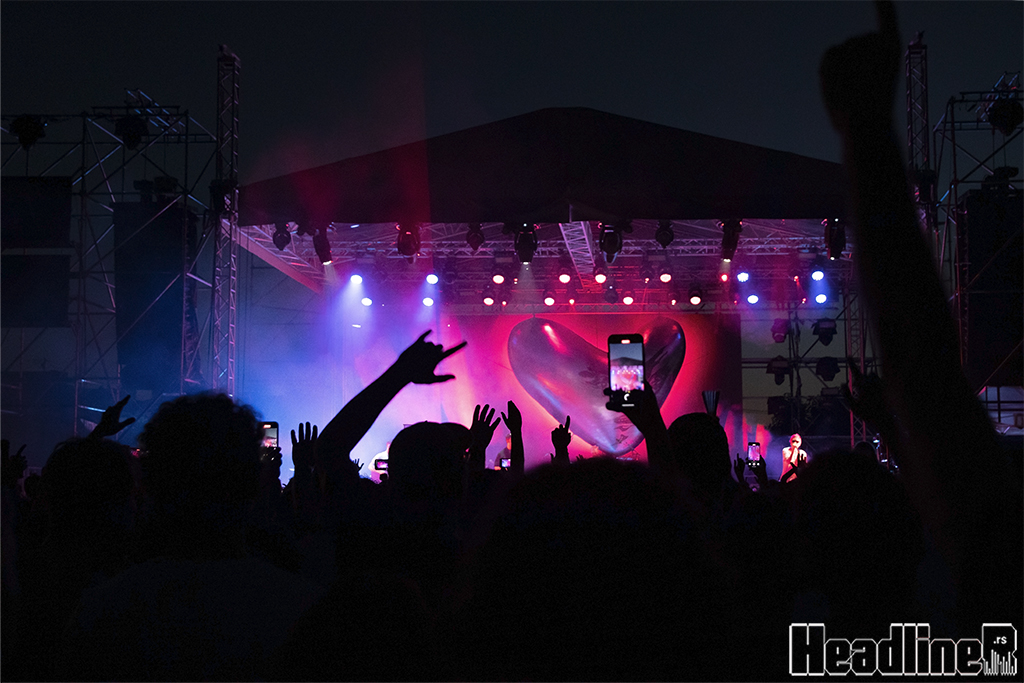
And so, June 25, 2025, could mean to Belgrade’s audience what early Oasis concerts meant to older generations—equally historic moments for those who never got the chance to be teenagers in Manchester during the golden years. But Fontaines D.C. chose, quite possibly, the hottest day in recent Serbian history for their first ever Belgrade show. Thirty-seven degrees Celsius and concrete steaming in the sun. Whatever slight relief the riverside setting of Luka Beograd could offer, the crowd quickly canceled out.
It was a workday, with the start time scheduled just before the end of most shifts. Despite the early entry option and some fans sprinting toward the barrier as soon as their tickets were scanned, it quickly became clear that it wasn’t all that necessary. Only those with the pricier version of the same ticket were already in front; behind them, others arrived with a mix of excitement and nervousness, fueled by stories circulating for months—there wasn’t a single person on the alternative scene who’d dare miss this.
Jadu Heart couldn’t make it. Instead, the stage belonged to perhaps the best live band in the country—Koikoi.
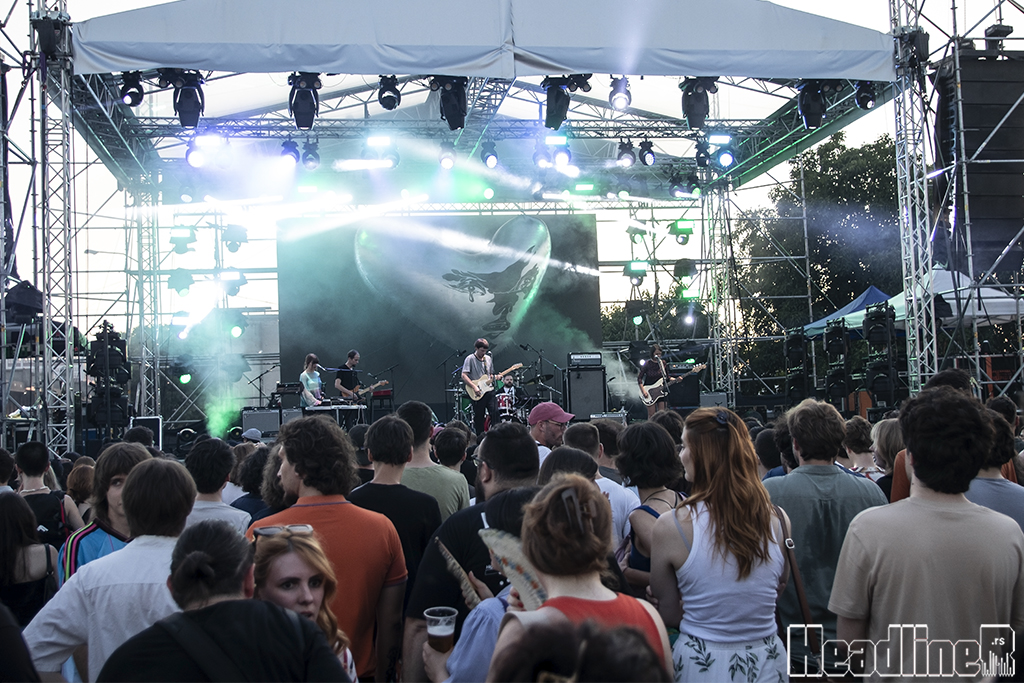
The stage was just high enough to cast a shadow, and the sunset had only just begun. The crowd was still manageable. Opening for Fontaines D.C? Unreal. The kind of nerves you don’t even imagine. Odds are, the band members already had their own tickets (or more likely, guest passes) when the game-changing call came. But if they were nervous, you wouldn’t know it. Koikoi delivered a phenomenal set.
There were new songs, and that breathtaking vocal section in Putem mimosa (and yes, you need courage to pull that off live). A handful of tracks later, they announced their last song. What do you mean, last song? someone shouted from the crowd. They launched into Misisipi. And anyone who knows them knows—that’s always the finale. They weren’t lying.
By the time the air had cooled down enough to breathe, the concrete and the crowd made sure no one noticed. Beer, water, anything drinkable—pointless. Everything turned lukewarm in minutes (and lukewarm beer should be banned at gigs unless you’re pouring it over someone mid-mosh). By then, we’d already been staring long enough at the heart onstage—the same one from the Romance cover. The anticipation was getting unbearable.
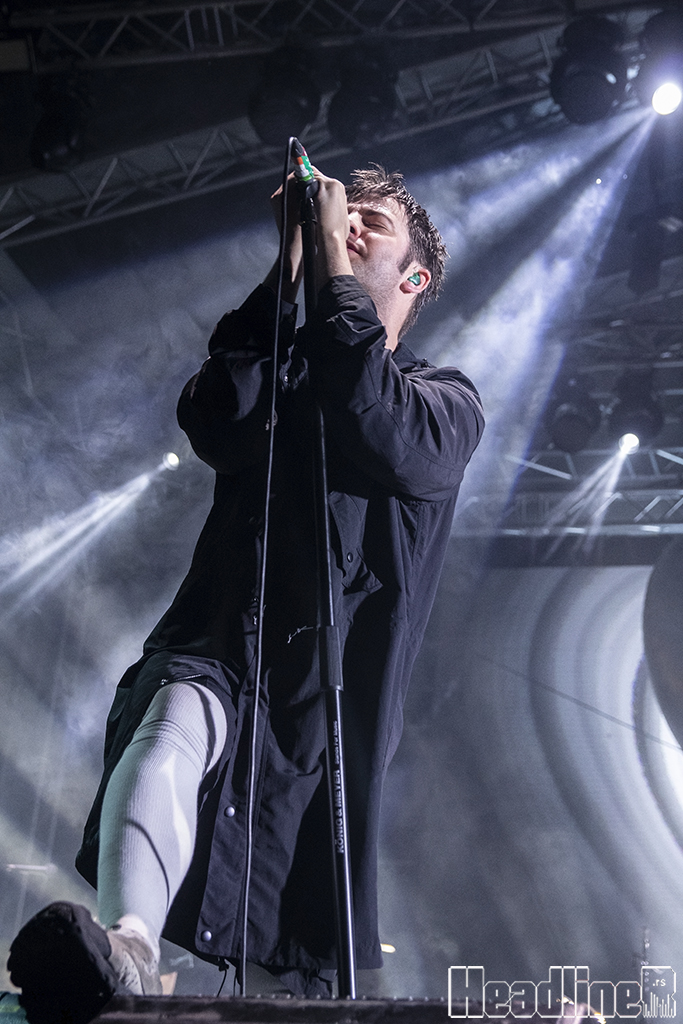
Jerseys (how hot must that have been?), plastic sunglasses in every shape and shade, Adidas in full effect. An unspoken but perfectly observed dress code. There was no other place in Belgrade to find people like this—everyone was already at Luka.
– This is a dream come true, hearing them live – said someone, and a new friendship was born. The excitement couldn’t stay unspoken. The wishlist kept growing, but Fontaines D.C. remained at the top. It still felt unreal that in just a few minutes, a dream would come true. If only I could hear IDLES too... One wish at a time.
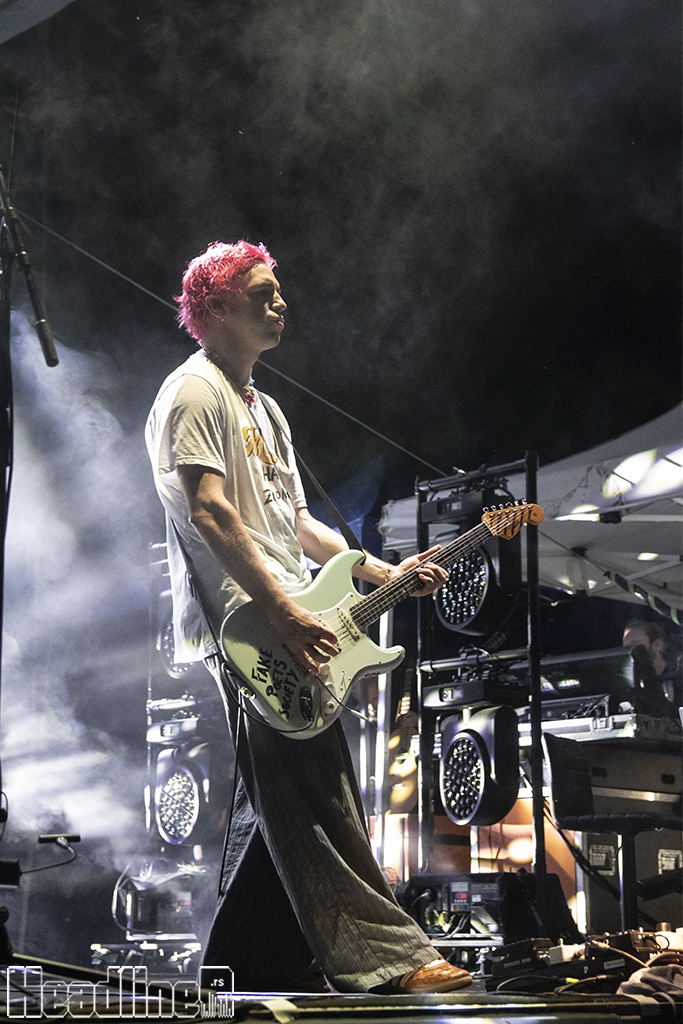
We sang along to There She Goes blasting through the speakers—and it was time.
They came out around fifteen minutes late, missing the perfect timing to play Sundowner at sunset (which, as it turned out later, they wouldn’t play at all). Green, blue, and pink lights lit up—just like the album cover. The heart onstage took full shape. They opened with Here’s the Thing, setting the tone immediately. Suddenly, the dress code made perfect sense—Carlos’s pink hair, Grian’s glasses, the wide-legged trousers—it all clicked. But above all else: the attitude.
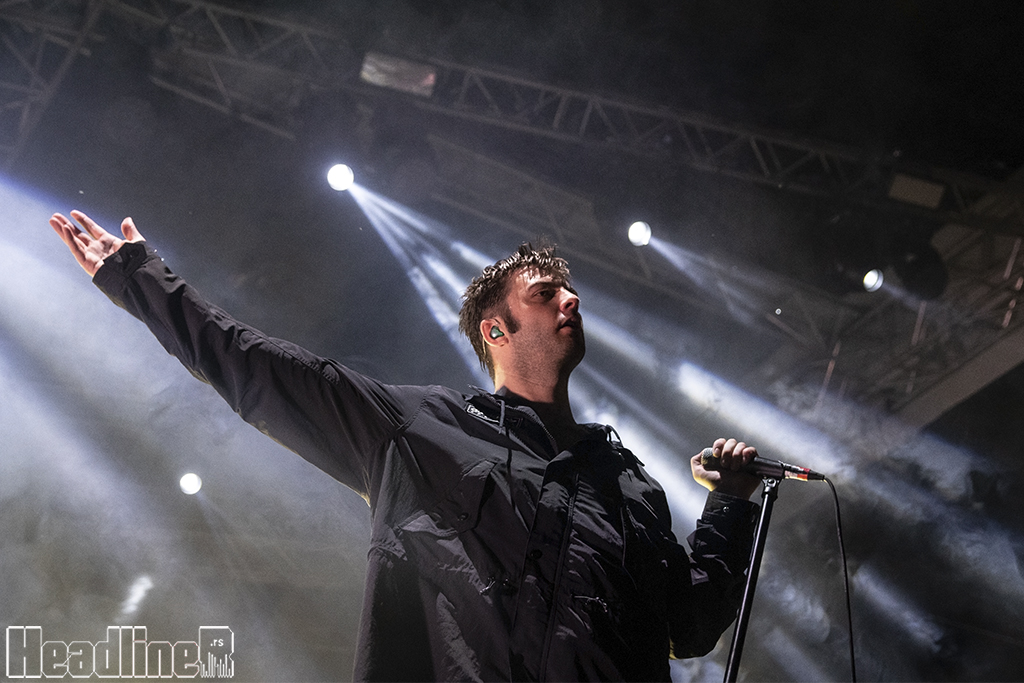
They don’t try to fit into a genre, nor do they try to justify the Dublin in their name. With that kind of presence, you simply nod and let go. Because they sound like the Dublin we imagine—uncategorized by genre, larger than labels. They are the genre. Grian wouldn’t let us help much with Jackie Down the Line, but when he shouted his do do do, we answered with the loudest la la la imaginable. By the third song, Boys in the Better Land, three guys suddenly pushed through to the front, dragging a few more behind—and the mosh pit didn’t stop until the very end.
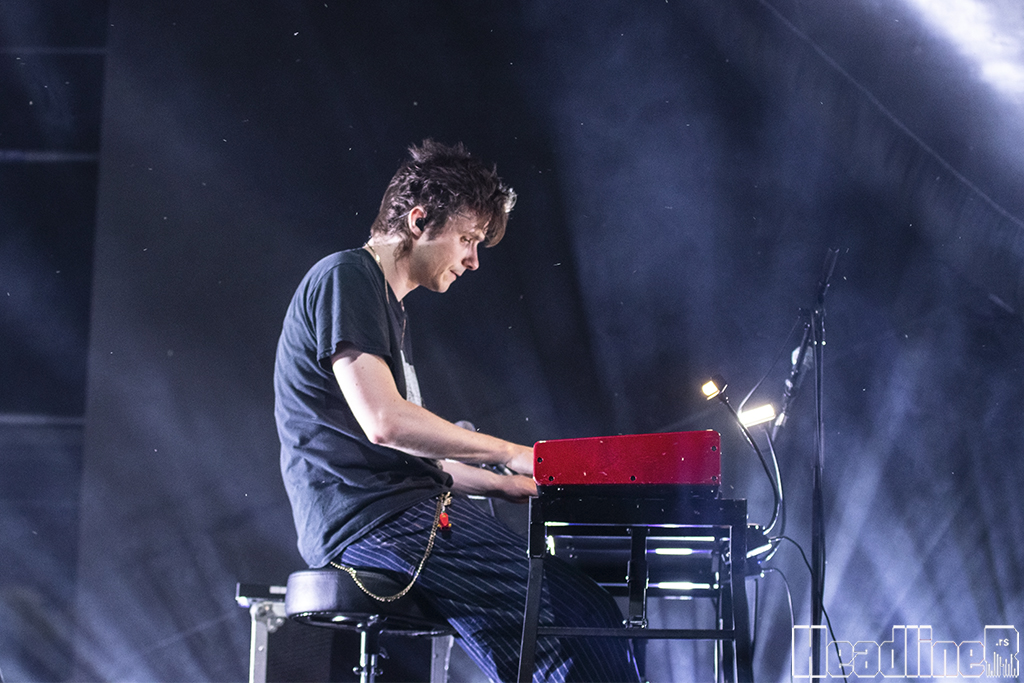
In the crowd, teens living a slice of history they were too young or too geographically distant to witness before. Alongside them—plenty of older fans. Dads who never stopped listening to music since the ’90s. Dads who don’t buy into the narrative that there are no good bands anymore. Because Fontaines D.C. are here to bring back that hope, to make parents rethink what they say about “today’s music” when they hear them on the radio.
That we love Romance—no doubt. That we lose it over the older songs—definitely. Some complained: Only two songs from Dogrel? Honestly, we’d have stayed for hours.
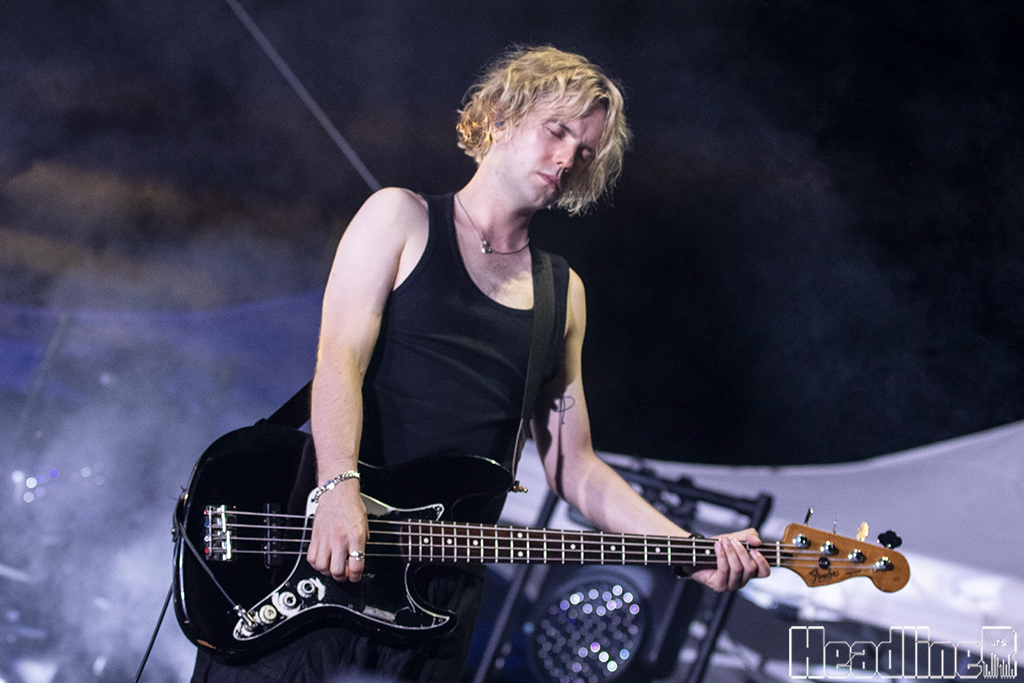
This time, the LED screens didn’t work. But the messages were loud and clear.
Pump it, Grian, followed by Free Palestine! We’re not sure how much he understood—but we understood everything.
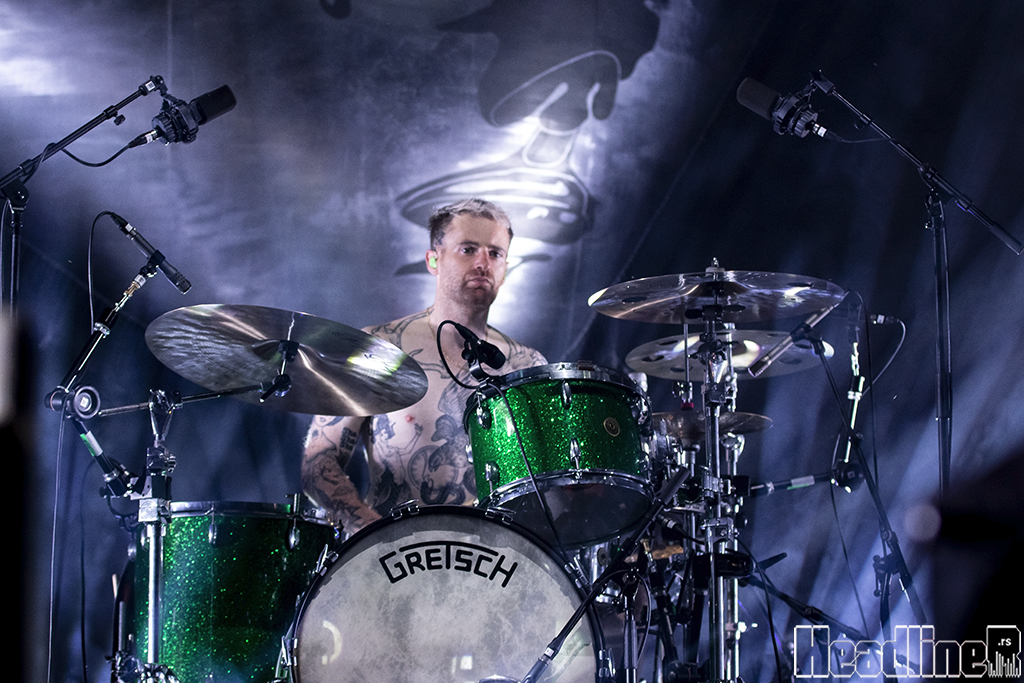
When you came into my life… we screamed the opening line of Death Kink. Grian stayed silent, letting us sing. Watching us, almost testing if we knew the whole verse. We did. Word for word. The next one, though—we couldn’t even speak. We went quiet when we heard Conor. The wind carried the scent of the Danube mixed with spilled beer—a few rare breezes of relief. There couldn’t have been a more perfect moment for It’s Amazing To Be Young. And it truly was. For a moment, it felt like we weren’t even in Belgrade. It was a parallel universe, born just far enough away for us to forget where we were—disappearing the moment we walked back out through the gates of their dreamlike atmosphere.
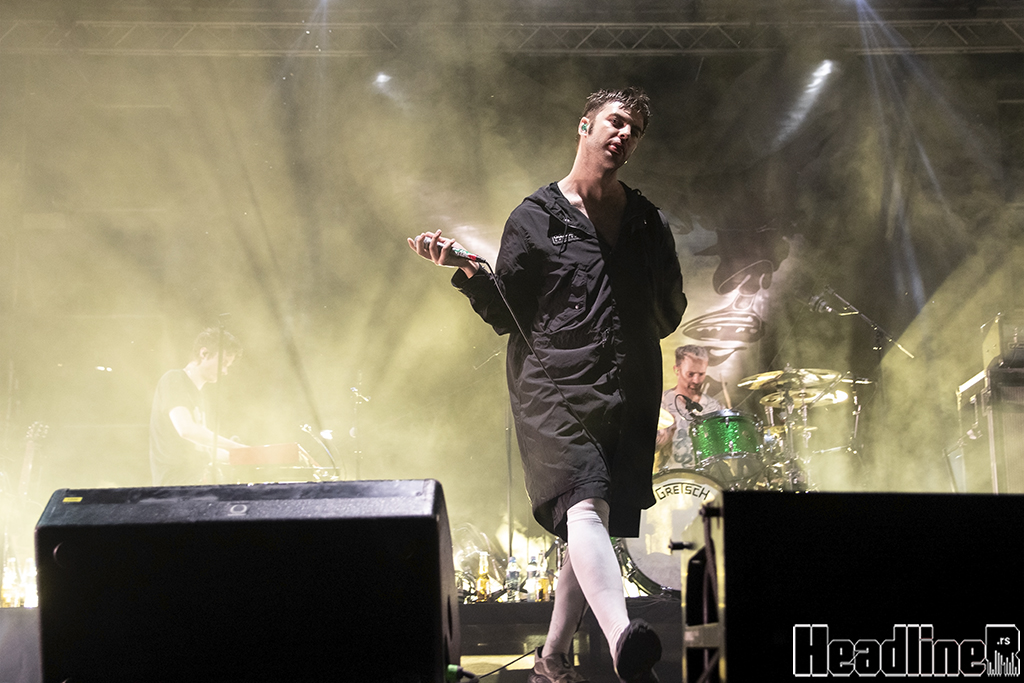
Hurricane Laughter brought a new dimension to the pit. And Favourite, which on the album sounds almost incompatible with moshing, turned into a live anthem of flying beer, lost voices, jerseys off and held high—exactly how a final song should be. Final, for just a moment. We called them back for an encore. Only then did we realize how much energy they had left. That was when they showed their true face. Finally, after a full set of no talking, we got Grian’s soft Hvala in Serbian.
The encore felt like something you’d call a core memory. We sang like a choir, while they played from within the smoke. The moshing turned into hugs. Starburster, in just under four minutes, showed us what stadium-sized really means. And in that moment, we showed them what a Belgrade crowd really is.
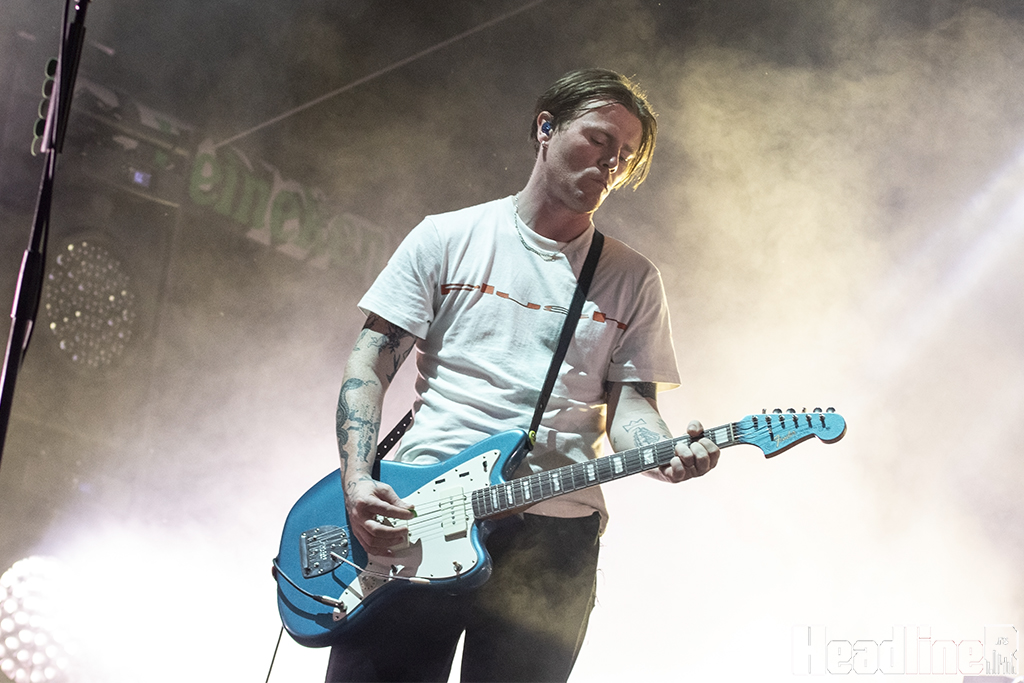
When it ended, we didn’t believe it. The lights came on sharply, wet hair and stunned grins all around. A few minutes later, we tried calling them back once more.
If they didn’t play a second encore, let them come back with the next tour. Let this be the first—but by no means the last time. Next time, just let it last a little longer.
J. Ilić for HL


